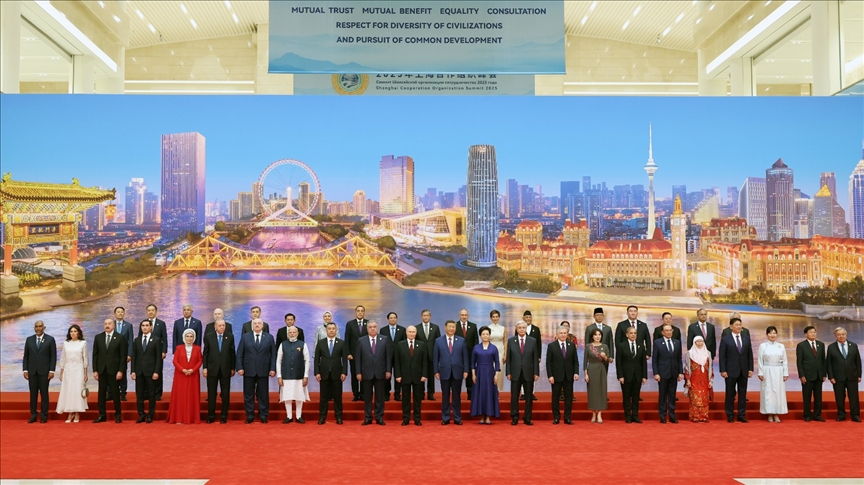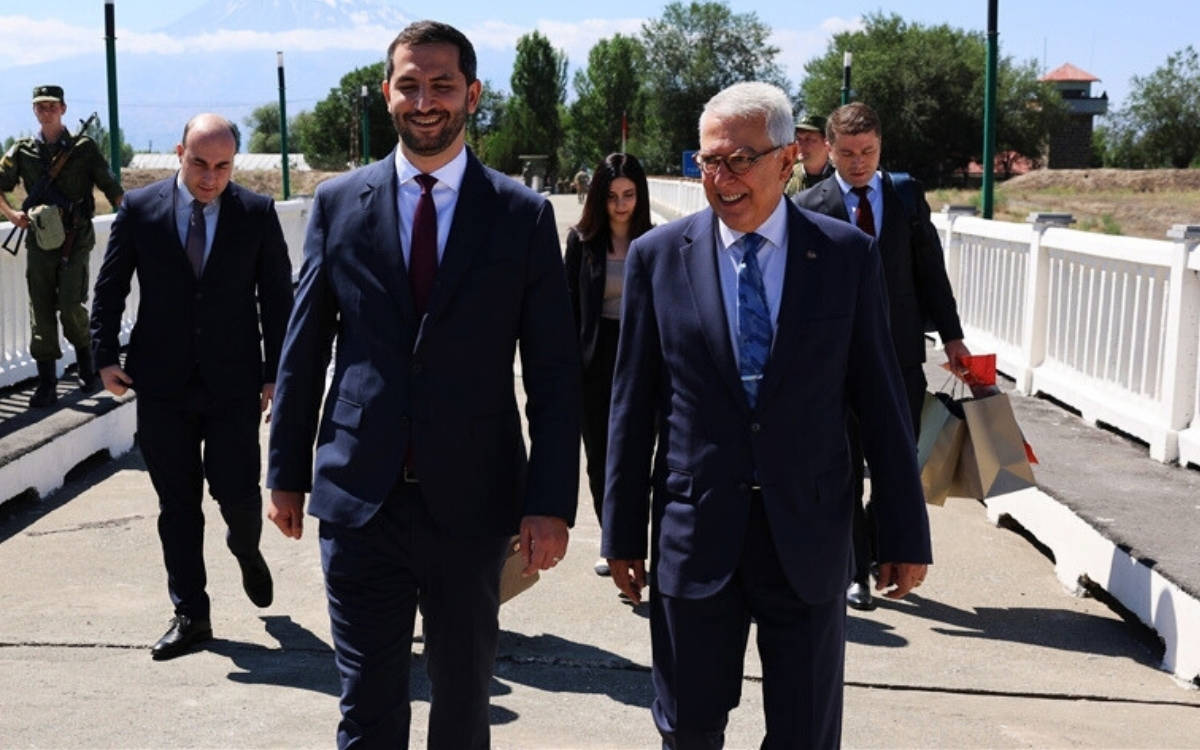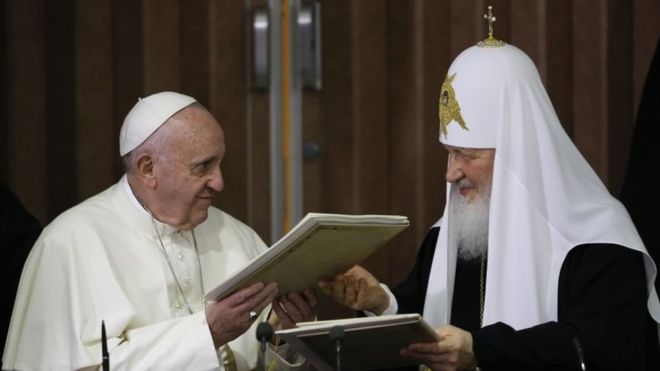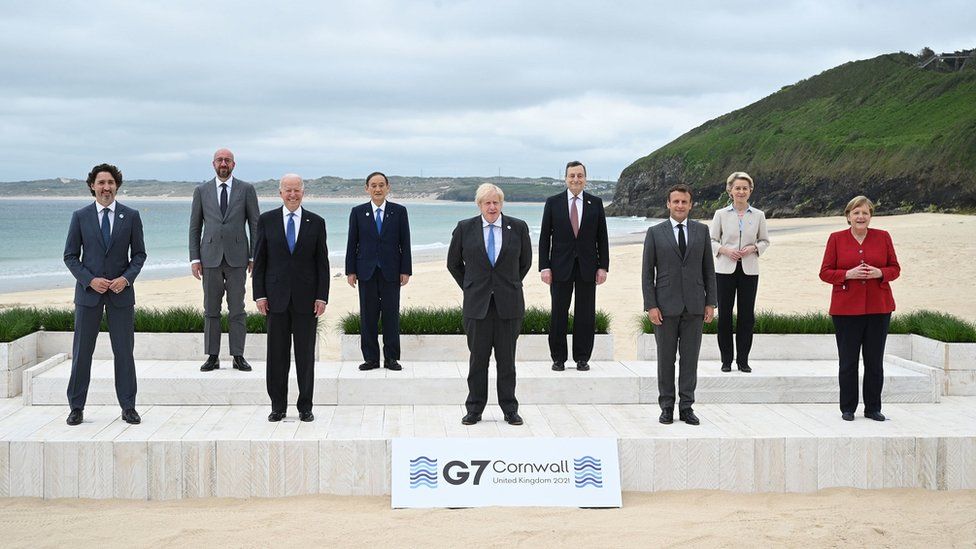
This is the English translation of a Turkish language article that was originally published by AVİM on 19 September 2025.
The Shanghai Cooperation Organisation’s (SCO) 25th Council of Heads of State was held in the city of Tianjin in China between the dates of 31 August-1 September. From its establishment with the priority of border security and economic aim of five members in 1996 to today, SCO has made significant steps as a result of the enlargement of the cooperation branches, the number of members, and membership type. With the participation of a large number of heads of states and representatives of international institutions, the Tianjin Summit has been recorded as the most well-attended SCO summit. Türkiye attended the summit at the level of presidency with the participation of President Erdoğan; and through this, he conducted bilateral meetings with leaders of China, Russia, Azerbaijan, Armenia, Pakistan, Iran, and the Secretary General of the Chinese Communist Party.[1] In his meeting with Chinese leader Xi during his to China after six years, President Erdoğan expressed support of the One China policy, emphasized that the trade between Türkiye and China should be balanced and that the Belt and Road Initiative should be harmonized with the Middle Corridor. Chinese leader Xi, for his part, emphasized the necessity improving bilateral relations.[2] It has indeed been observed that the diplomatic interaction between Türkiye and China have increased lately. It is possible to interpret this situation with Türkiye’s understanding of the policy of strategic balance.
At the SCO Tianjin Summit, considering the participation of the Russian Head of State Putin, the Prime Minister of India Modi, and the President of North Korea Kim, the President of Iran Pezeshkian and that the meetings that were held during the summit, has been interesting in terms of SCO’s non-Western positioning. The leader of India, who has had problems recently with the US administration due to the commercial relations and tariffs, visited China for the first time after the war that was fought with China in 2020. The Tianjin Declaration, which was accepted at the end of the summit, condemned the attacks that were carried out in India’s Pahalgam region in April. The declaration similarly condemned the terror attacks in Pakistan. This situation has been interpreted as SCO positioning itself equally in relation to all the parties against terror.[3] The attacks against Iran were also condemned by openly referring to the US and Israel.[4] This situation carries a significant difference in terms of the utterance of the names of the aggressor parties, especially in comparison to the last BRICS summit. With the participation of the President of North Korea Kim, North Korea participated in a large scale international organization for the first time. These developments emphasize SCO’s non-Western approach.
A memorandum for the “Power of Siberia-2” pipeline project and a total of twenty-two contracts on various subjects were signed during the President of Russia Putin’s meeting with the President of China Xi.[5] The Power of Siberia-2 project strengthens the ties between Russia, Mongolia, and China and diversifies the pipeline routes in Central Asia.
Subjects like the much greater representation of the non-Western world and enhancing global governance came up at the Tianjin Summit. The summit also served as an occasion for the decision to establish the SCO Development Bank, which will result in the diversification of alternative finance institutions. These topics had also come up at the BRICS Summit, the summit of the organization that includes China, Russia, Iran, and India as members. However, it has been observed that the influence of China was comparatively more pronounced at the SCO Summit.[6] At the Tianjin Declaration, published at the end of the summit, it was stated that Central Asia constitutes the core of SCO, and that the collaboration within SCO will form an indivisible security architecture in Eurasia. The issues of Afghanistan and Palestine were also discussed, and the necessity of transporting humanitarian aid to Gaza was highlighted. In addition, Laos was accepted as a dialogue partner to SCO.[7] On the other hand, it was asserted that the recent enlargement of the member numbers and the collaboration branches of the SCO has decreased the impact of goals like combatting the “three evils” (terrorism, separatism, extremism) and furthering regional security, which were the original goals during the emergence of the organization.[8] Finally, it was decided to organize the 2026 SCO Council of Heads of State in the Kyrgyz Republic.
After the end of the Tianjin Summit, a Victory Day military parade was organized in the Tiananmen Square of the Chinese capital Beijing on 2 September to commemorate the 80th anniversary of the “the Chinese People’s War of Resistance Against Japanese Aggression (1931-45) and the World Anti-Fascist War”. Numerous country leaders participated in the military parade, while Türkiye attended the said parade at the level of the Minister of Foreign Affairs. China, thanks to the parade, found the opportunity to strengthen its victory narrative after the Second World War. At the same time, the country demonstrated its defense capability, reinforced by new technologies and strategies. During the parade, China demonstrated both its conventional and nuclear military equipment that includes modern weapons with both defensive and offensive capabilities, anti-ship missiles, and electronic warfare instruments.[9] Another situation that was featured prominently in the parade were the themes of “harmony” and “conformity” that are sometimes emphasized by several Asian countries, most notably China.
In conclusion, the SCO Tianjin Summit, while serving as a venue for the enchantment of Türkiye-China relations through the summit diplomacy, also provided the opportunity for Türkiye to reinforce its versatile foreign policy. On the other hand, SCO, which expanded its collaboration and sphere of influence with Laos being accepted as a dialogue partner, also indicated that Central Asia is still a priority for the organization. This current period in which the US is heading towards protectionist policies and reviewing its global leadership role creates a significant sphere of influence for China, and the decisions and the discourses of leaders at the final declaration of the SCO reveal that Chinese presence is strengthening within the organization. On the other hand, the protectionist and anti-Iran, Russia, North Korea policies of the US highlight SCO as an alternative formation for the mentioned countries. Lastly, the Victory Day Parade that was organized by China right after the Tianjin Summit demonstrated China’s new technology and new military strategies and the strengthening of People’s Liberation Army of China. On the one hand, the parade displayed both a show of strength and challenge by China, and on the other hand, it reflected the desire to showcase a “China in harmony.”
*Image: Anadolu Agency
[1] Mümin Altaş, Muhammed Nuri Erdoğan, Özcan Yıldırım, “Cumhurbaşkanı Erdoğan, Çin'de İkili Görüşmelerini Sürdürdü”, Anadolu Ajansı, September 1, 2025, https://www.aa.com.tr/tr/gundem/cumhurbaskani-erdogan-cinde-ikili-gorusmelerini-surdurdu/3674634
[2] Mümin Altaş, Merve Yıldızalp Yormaz, Emre Aytekin, “Cumhurbaşkanı Erdoğan'dan Çin'de Diplomasi Trafiği”, Anadolu Ajansı, Augus 25, 2025, https://www.aa.com.tr/tr/gundem/cumhurbaskani-erdogandan-cinde-diplomasi-trafigi/3674119
[3] Fred Gao, “SCO Tianjin Declaration”, Inside China, September 2, 2025, https://www.fredgao.com/p/sco-tianjin-declaration
[4] “Tianjin Declaration of the Shanghai Cooperation Organization”, Diplo, https://www.diplomacy.edu/resource/tianjin-declaration-of-the-shanghai-cooperation-organization/#Memberstates61
[5] Alperen Aktas,“Russia, China Sign 22 Cooperation Agreements İncluding Energy, Science, Healthcare”, Anadolu Agency, September 2, 2025, https://www.aa.com.tr/en/asia-pacific/russia-china-sign-22-cooperation-agreements-including-energy-science-healthcare/3676174
[6] Ziya Öniş , “Perspectives from Tianjin: The Shanghai Cooperation Organization Summit in Trump’s Shadow”, Global Panorama, September 8, 2025 https://www.globalpanorama.org/en/2025/09/perspectives-from-tianjin-the-shanghai-cooperation-organization-summit-in-trumps-shadow-ziya-onis/
[7] Emre Aytekin, “Şanghay İşbirliği Örgütü Zirvesi'nde "Tiencin Deklarasyonu" Kabul Edildi”, Anadolu Ajansı, September 2, 2025, https://www.aa.com.tr/tr/dunya/sanghay-isbirligi-orgutu-zirvesinde-tiencin-deklarasyonu-kabul-edildi-/3675781
[8] Lakhvinder Singh,“SCO Summit 2025 in Tianjin: A Positive Reset for Global Governance”, China Daily Asia, September 14, 2025, https://www.chinadailyasia.com/hk/article/619863
[9] Murat Aslan, “Çin'in Zafer Günü Kutlamaları: Yeni Bir Kutup mu Doğuyor?”, Anadolu Ajansı, September 16, 2025, https://www.aa.com.tr/tr/analiz/cinin-zafer-gunu-kutlamalari-yeni-bir-kutup-mu-doguyor/3689065
© 2009-2025 Center for Eurasian Studies (AVİM) All Rights Reserved
No comments yet.
-
 APEC LIMA SUMMIT
APEC LIMA SUMMIT
Seyda Nur OSMANLI 28.01.2025 -
 THE D-8 CAIRO SUMMIT
THE D-8 CAIRO SUMMIT
Seyda Nur OSMANLI 06.02.2025 -
 SYRIA AND CHINA AFTER THE ASSAD REGIME
SYRIA AND CHINA AFTER THE ASSAD REGIME
Seyda Nur OSMANLI 18.02.2025 -
 TIANJIN SUMMIT OF THE SHANGHAI COOPERATION ORGANISATION
TIANJIN SUMMIT OF THE SHANGHAI COOPERATION ORGANISATION
Seyda Nur OSMANLI 04.11.2025
-
THE MESSAGE OF THE PRIME MINISTER
Ömer Engin LÜTEM 24.04.2014 -
 A NEW STAGE IN THE TÜRKİYE-ARMENIA NORMALIZATION PROCESS: THE YEREVAN MEETING
A NEW STAGE IN THE TÜRKİYE-ARMENIA NORMALIZATION PROCESS: THE YEREVAN MEETING
Tuğçe TECİMER 16.10.2025 -
 RELIGIOUS POLARIZATION IN LINE WITH DEMOGRAPHIC CHANGES AND ITS EFFECT ON POLITICS
RELIGIOUS POLARIZATION IN LINE WITH DEMOGRAPHIC CHANGES AND ITS EFFECT ON POLITICS
AVİM 20.07.2016 -
 DOES THE G7 SUMMIT PROVE THAT THE WEST CAN “BUILD BETTER"?
DOES THE G7 SUMMIT PROVE THAT THE WEST CAN “BUILD BETTER"?
Gülperi GÜNGÖR 28.06.2021 -
THE GREEK ADMINISTRATION OF SOUTHERN CYPRUS (GASC) HAS ALSO BEEN ADDED TO THE BAIL OUT PACKAGE OF THE EUROPEAN UNION
Alev KILIÇ 13.11.2012
-
25.01.2016
THE ARMENIAN QUESTION - BASIC KNOWLEDGE AND DOCUMENTATION -
12.06.2024
THE TRUTH WILL OUT -
27.03.2023
RADİKAL ERMENİ UNSURLARCA GERÇEKLEŞTİRİLEN MEZALİMLER VE VANDALİZM -
17.03.2023
PATRIOTISM PERVERTED -
23.02.2023
MEN ARE LIKE THAT -
03.02.2023
BAKÜ-TİFLİS-CEYHAN BORU HATTININ YAŞANAN TARİHİ -
16.12.2022
INTERNATIONAL SCHOLARS ON THE EVENTS OF 1915 -
07.12.2022
FAKE PHOTOS AND THE ARMENIAN PROPAGANDA -
07.12.2022
ERMENİ PROPAGANDASI VE SAHTE RESİMLER -
01.01.2022
A Letter From Japan - Strategically Mum: The Silence of the Armenians -
01.01.2022
Japonya'dan Bir Mektup - Stratejik Suskunluk: Ermenilerin Sessizliği -
03.06.2020
Anastas Mikoyan: Confessions of an Armenian Bolshevik -
08.04.2020
Sovyet Sonrası Ukrayna’da Devlet, Toplum ve Siyaset - Değişen Dinamikler, Dönüşen Kimlikler -
12.06.2018
Ermeni Sorunuyla İlgili İngiliz Belgeleri (1912-1923) - British Documents on Armenian Question (1912-1923) -
02.12.2016
Turkish-Russian Academics: A Historical Study on the Caucasus -
01.07.2016
Gürcistan'daki Müslüman Topluluklar: Azınlık Hakları, Kimlik, Siyaset -
10.03.2016
Armenian Diaspora: Diaspora, State and the Imagination of the Republic of Armenia -
24.01.2016
ERMENİ SORUNU - TEMEL BİLGİ VE BELGELER (2. BASKI)
-
AVİM Conference Hall 24.01.2023
CONFERENCE TITLED “HUNGARY’S PERSPECTIVES ON THE TURKIC WORLD"









